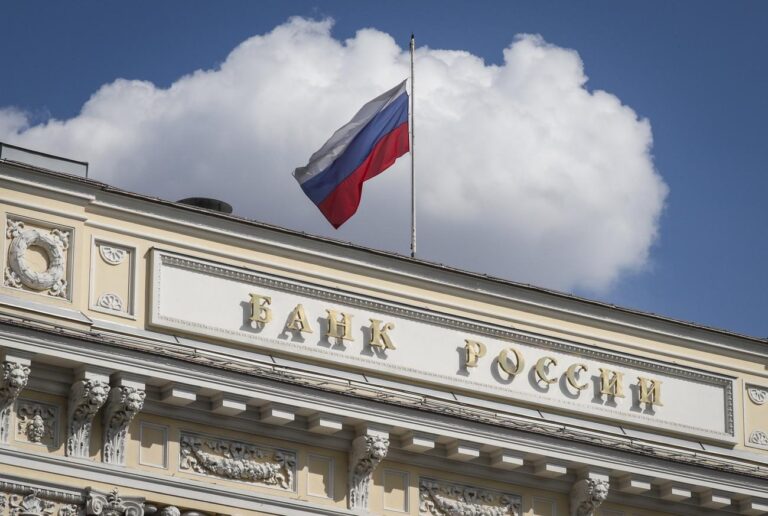germany’s Stance on Confiscating Frozen russian Assets: A New Approach
In a decisive declaration that highlights Germany’s position amid the ongoing geopolitical strife resulting from Russia’s actions in ukraine, Friedrich Merz, leader of the Christian Democratic Union (CDU), has announced that the German government is ready to consider confiscating frozen Russian assets, provided it aligns with legal standards. addressing journalists,Merz articulated that this action would not only serve as a punitive response to the Kremlin but also aid Ukraine in its quest for sovereignty. This statement emerges during heightened scrutiny over how assets tied to russian oligarchs and state entities are managed, reflecting a broader Western strategy aimed at utilizing financial mechanisms in response to aggression.
Merz Pushes for legal Options to Confiscate Russian Assets
Friedrich Merz has made headlines by advocating for potential legal pathways to seize Russian assets currently frozen within Germany. These assets have been immobilized due to sanctions enacted following Russia’s invasion of Ukraine and are valued at billions.Merz contends that leveraging these funds could play a crucial role in supporting Ukraine’s recovery initiatives. He stressed that while there is an evident moral obligation, any course of action must be meticulously assessed for compliance with international law and justice principles.
This advocacy occurs against a backdrop of ongoing debates throughout Europe regarding the future of frozen Russian resources. key aspects under discussion include:
- Legal Adherence: Ensuring all confiscation efforts comply with established legal frameworks.
- Aid for Ukraine: Directing funds towards rebuilding efforts in war-affected regions of Ukraine.
- International Collaboration: Working alongside allies to create a cohesive strategy regarding Russian assets.
The call for more decisive measures resonates within the European Parliament as Merz’s stance indicates an increasing urgency among German lawmakers not only to resist Russian aggression but also take concrete steps toward accountability. As discussions progress, balancing legal intricacies with urgent humanitarian needs will be paramount.
impact of Asset Confiscation on Global Relations and Economic Stability
The recent comments from Friedrich Merz about possibly seizing frozen Russian assets have sparked considerable concern among global observers.Such actions could heighten tensions between nations if viewed as breaches of legal norms or existing bilateral agreements. The repercussions may extend beyond immediate diplomatic strains; they could trigger retaliatory measures that threaten international relations’ stability.Countries might respond defensively in order to safeguard their national interests, leading towards an increasingly fragmented geopolitical environment marked by distrust and hostility.
The economic consequences stemming from asset confiscation could ripple through global markets, affecting investor confidence and altering trade dynamics internationally. The financial landscape may experience turbulence as nations navigate sanctions complexities related to frozen resources—potentially disrupting established economic ties. Notable implications include:
- A rise in volatility within currency markets
- Possible changes in patterns concerning foreign direct investment
- Sustained damage impacting bilateral trade relationships
Nations must engage thoughtfully with both the ethical considerations surrounding asset confiscation while fostering dialog aimed at cooperation rather than conflict moving forward; striking a balance between punitive actions and maintaining global economic stability will be critical for policymakers ahead.
Strategies for developing a Comprehensive Legal Framework
As conversations about seizing frozen russian assets gain traction, it becomes essential for policymakers to establish a robust legal framework prioritizing compliance with international law alongside fairness during execution processes. A well-defined structure should ensure defensibility under international regulations while mitigating potential backlash or litigation risks associated with such measures.
Key components worth considering include:
- Clearly Defined Legal Authority: Specify which laws permit asset seizures while ensuring alignment with existing international sanctions frameworks.
- Diligence Standards: Create procedures safeguarding affected parties’ rights through transparent review or appeal mechanisms concerning asset seizure decisions.
- <strongTransparency Initiatives:Create regulations promoting clarity throughout decision-making processes so stakeholders can understand rationales behind actions taken effectively.
Beyond structural elements alone,it is vital also engage internationally fostering coordinated approaches toward asset recovery.Adopting shared guidelines can harmonize efforts across jurisdictions minimizing cross-border conflicts.Furthermore,a continuous assessment process allows adaptations improving overall effectiveness over time.Key considerations should encompass :
| Consideration | Action Item |
|---|---|
| International Cooperation | Initiate dialogues among allied nations establishing unified protocols around asset seizures . |
| Legal Adjustments | Regularly review amend laws reflecting developments emerging globally . |
| Stakeholder Engagement | Create forums inviting citizen expert input shaping inclusive approaches legally . |
Conclusion: Navigating Complex Waters Ahead Â
The firm position taken by Germany regarding freezing seizedRussianassets illustrates growing determination amongst European countries holding Russia accountableforitsactionsinUkraine.As deliberations continue surrounding necessarylegalframeworks facilitatingtheseactions,the ramificationsforinternationalfinanceanddiplomaticrelationsareprofound.WithpolicymakerslikeFriedrichMerzatforefrontofthisissue,evolvingdevelopmentswillbecloselywatchedbybothalliesandadversariesalike.AsEuropegrappleswiththesechallenges,thecriticalquestionremains:howwilltheseactionsreshapebroaderlandscapesofinternationallawandeconomicpolicygoingforward?Staytunedforupdatesasthisstoryunfolds.




